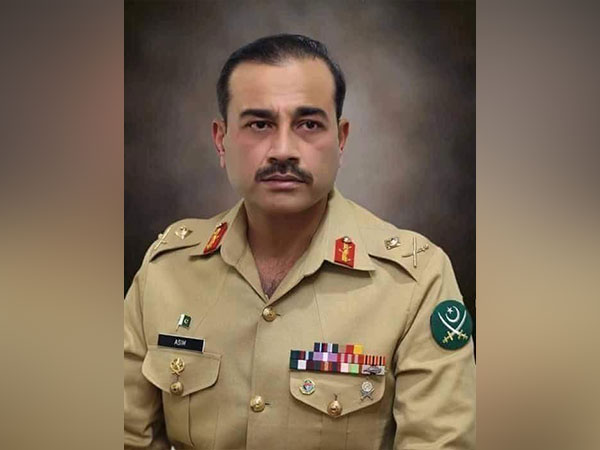
Islamabad: Chief of Army Staff Gen Asim Munir on Wednesday said that he would not interfere in politics, reported The News International.
He said that political leadership should resolve its issues on its own in a Geo News programme "Aaj Shahzeb Khanzada Kay Saath." Former Prime Minister of Pakistan and Pakistan Tehreek-e-Insaf chief Imran Khan earlier had said that he is ready to talk to Army Chief General in the broader interest of the country but no one is willing to talk.
Responding to it, the army chief said that it was not his job as army chief to meet politicians.
Asim asserted that the army would neither interfere in politics nor would play any role in it. He maintained that he would not interfere in political matters and the political leadership itself should resolve its issues, reported The News International.
Speaking in the programme, senior anchorperson Hamid Mir said President Arif Alvi had tried to arrange a meeting between Gen Asim Munir and Imran Khan. The army chief told the president that he wants to stay away from politics, Mir added.
The populism of ousted Pakistan Prime Minister Imran Khan represents a threat to the Pakistani military and to its relationship with the country's population, reported 9 Dashline.
There is an irony in the military selecting an individual that could, plausibly, lead to its own downfall. In the past, the reverse has often been the case. In 1976, then Pakistani Prime Minister Zulfikar Ali Bhutto appointed General Muhammad Zia-ul-Haq as COAS, only to be deposed -- and later hanged -- by Zia the following year.
Similarly, Nawaz Sharif had appointed General Pervez Musharraf in 1998 before facing the same fate as Bhutto in 1999, albeit without losing his life.
Having tacitly played a major role in installing Khan, the chief of Pakistan Tehreek-e-Insaf (PTI) at the summit of Pakistani politics and giving him the platform to build on his then-already burgeoning cult of personality, the shoe is on the other foot for the military, said Marcus Andreopoulos, a senior research fellow at the Asia-Pacific Foundation.
At the end of November 2022, after six years at the helm of the single most powerful institution in Pakistan, General Qamar Javed Bajwa was officially succeeded by General Asim Munir as the country's Chief of Army Staff (COAS).
Out of office, Khan is proving to be a relentless source of pressure, first for Bajwa and now for Munir.
Munir took office at a precarious time for the country, as the civilian government prepares for contentious elections in 2023 and as the military grapples with an array of strategic challenges, reported 9 Dashline.
The most urgent and immediate threat facing Munir and the coalition government is the populist rhetoric of Imran Khan, reported Andreopoulos.
Khan has accused the military of holding the country back during a time of economic and humanitarian catastrophe. Meanwhile, supporters of the now-leader of the opposition are rallying around the notion that the army was behind his downfall.
The failed attempt on Khan's life at the start of November has only reinforced this populist narrative. Khan continues to build on this momentum, hosting rallies attended by thousands of adoring supporters -- both new and longstanding -- much to the government's and military's frustration.